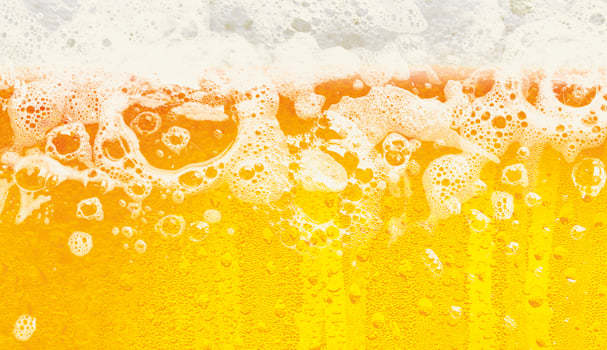Pubs are in decline, say the headlines. The British have lost their taste for beer and are instead staying at home to drink wine purchased at the supermarket. The drinks industry blames high duties on alcohol and the smoking ban. Others claim it’s the result of a move to a more insular lifestyle powered by home entertainment. The great British institution that is the pub is dying out.
You’ve all read stories and perhaps concluded that the pub business is not one worth entering. Indeed, statistics show that pub closures have been rampant through the first part of this century. During the peak of the recession in 2009 there were an average of 52 pub closures every week. This has slowed a little, but still during March and September 2012 there were about 18 closures every week. But have the British really gone off their pubs? Thankfully the answer is no, and a new breed of pub entrepreneur is on the rise.
Legislation and change
The pub/brewery industry was initially dealt a hammer blow by a surprise move from the Thatcher government. The little-known Beer Orders of 1989 stipulated no brewery could own more than 2,000 public houses. The move, designed to boost competition, shocked the brewery industry which realised its days of endless expansion were over. So the industry reordered itself and soon pub companies, rather than breweries, owned pubs, and ‘the tied house’ model became the norm. In these agreements, the tenant landlord rents the property from the company and is obligated to buy the beer and cider it sells. Critics of the ‘tied house’ model say it squeezes the tenants financially through unfair pricing and restricts their ability to invest, leading to pub closures. Of course, the pub companies deny this and argue it isn’t in their interests to see pubs close and that their rents and beer prices are fair. On balance, it would appear that some deals are better than others, but either way the closures are still happening.
New breed
Entrepreneurs looking to make it in the pub industry are finding better models for growth, as well as marketing strategies that allow them to stand out from the corporates.
Matt Scriven is one such entrepreneur and has been steadily expanding his pub and bar business, Bitters ‘n’ Twisted Venues, since 2006 and now runs six premises with a combined turnover of more than £5m. He has taken over several ‘failed’ pubs in Birmingham and reinvented them with new concepts, improved drinks offerings and a touch of quirkiness. He says the reasons for pub failures are often fairly easy to remedy.
“The tied model means that tenants get ground down and can no longer take a helicopter view of their business. A lot of what goes into creating a good venue isn’t rocket science. Sometimes it’s something really obvious, like adding a dimmer switch to change the lighting,” he says. “The problem with the tied model is that it doesn’t provide tenants with the right kind of rewards and incentives, and some don’t have the skills to diversify their businesses.”
Scriven says it doesn’t worry him that pubs are closing, and suggests there is still a future for the industry and for exciting independent businesses. “I take a different view. I travel around the country a lot and see what’s going on, what works, what’s successful and how busy other venues are. If I can’t see anything in Birmingham that fits that model I ask, ‘Why can’t it work in Birmingham?’ and if I can’t think of a good answer, I set one up.”
Scriven works with managers, in some cases involving them from the start, to create a distinct concept. One of his city centre pubs, the Jekyll and Hyde, takes on a gothic Victorian feel and has a gin parlour upstairs.
“My model is about bringing in a manager and I try to involve them in the concept and use their passions. We define the music policy, think about the pub’s architecture and try to add some element of quirkiness. I am very passionate about cask ales, but a lot of my managers tend to focus on the cocktail side.”

Something’s brewing
One of the consequences of the pubs and breweries separating was a lack of investment in cask ale. For a while, pub companies favoured nitrokeg ales, which were cheap to produce and kept well. However, consumers began to turn their backs on them and feedback suggested they were associated with bad hangovers. But, over the past decade, there’s been a resurgence in cask-ale brewing and consumers are responding. According to the Cask Report, real-ale sales rose by 1.6% in 2011 and remained strong during 2012, bucking the trend for beer sales, which are in decline overall. The report’s authors also suggest pubs that serve cask ale are more likely to survive than those that do not.
The rise in popularity of cask ales is good news for businesses such as Purity Ales, which began brewing in Warwickshire in 2005. The brewer has won awards for its ales such as the Mad Goose and UBU, and sells well in both pubs and retail outlets. The business increased sales by 23% in the last financial year to achieve revenues of £3.2m.
It is also expanding with a new brew house under construction and with plans to open its own pub. Managing director Paul Halsey is positive about the company’s prospects: “The opening of our new brew house will be a landmark step for the company. There are plans for further recruitment in the first half of the year and a new beer in the second– 2013 looks set to be an exciting period for Purity.”
Adapt or die
The UK has changed in so many ways over the past 20 years and this is part of the reason for the decline in pub numbers. For instance, city centre living is on the rise, reversing the long trend of suburbanisation, which characterised post-war Britain. This means footfall in the city centres is rising, which is good news for premises located there but bad news for those in the villages. Indeed, consumption patterns have changed, and wine and cocktails are now on the menu at many successful pubs, alongside cask ales, exotic lagers and food. British men no longer head to the pub to sink ten pints with a pack of cigarettes following a day’s graft at the pit or factory. Pubs that are still based on this approach can indeed expect to disappear.

BrewDog
If there’s one company that represents the new breed of brewers it must be BrewDog. The Aberdeenshire-based business, founded in 2007 by James Watt and Martin Dickie, started off brewing ‘hardcore’ ales and selling them in small quantities at markets and fairs. It grew and began to open its own pubs.
However, it was unable to gain bank finance to expand and so went out to its own customers to raise money. “We had this crazy idea of bypassing banks and allowing lovers of craft beer to have a direct impact on the essence of the company,” says Watt. “It was a bold move, one we were optimistic about, but we definitely could not envision the speed at which we were able to reach our target of £2.2m. We’ve got over 7,000 investors now, all with a great passion for our beer and brand.”
BrewDog now has premises in ten British cities and a group turnover of £11m. The business embraces the truly ‘anti-corporate’ persona and message, with brews such as Punk IPA and Dead Pony Club. “Our beer is targeted at anyone who is tired of the status quo, anyone who is interested in the possibilities of beer. Anyone who truly believes beer is to be enjoyed and understood, not simply consumed in mass quantities for an alcohol hit. We want to get people falling in love with beer again,” says Watt. ![]()
Share via:








































